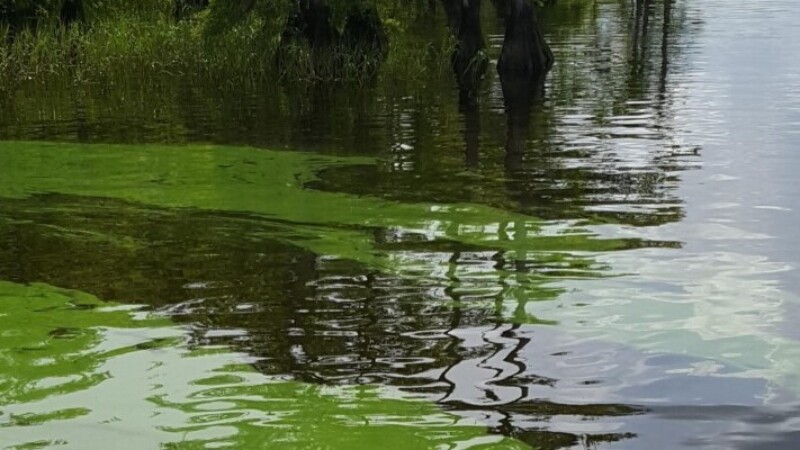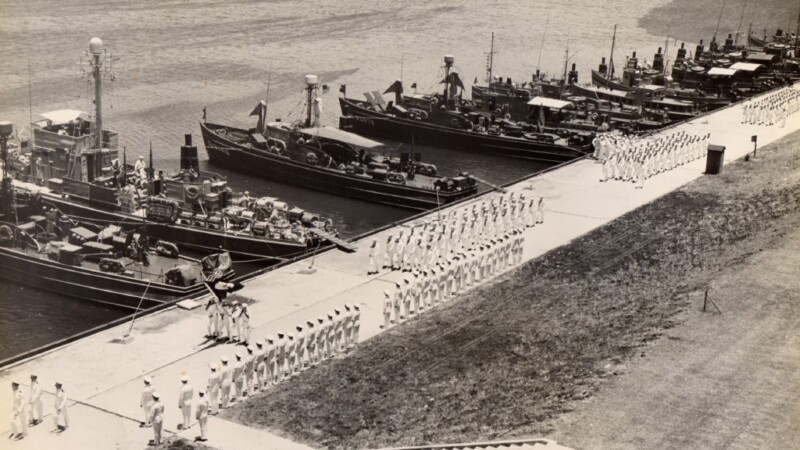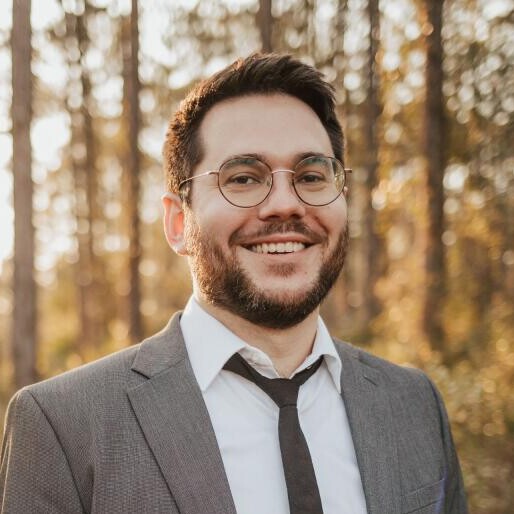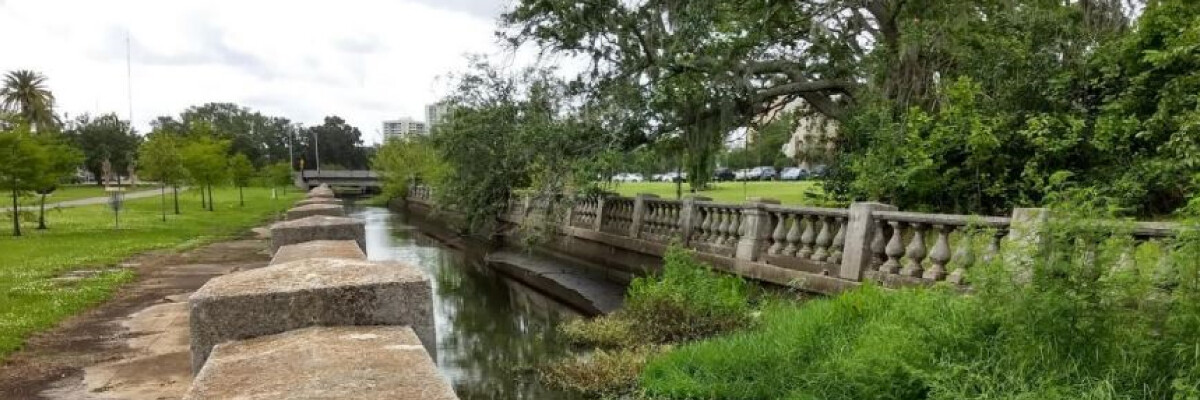In early 2019, Jacksonville Mayor Lenny Curry announced he was putting together an ad hoc committee on sea level rise. Clad in a rain jacket, he was speaking on the sand at a press conference about the completion of a beach renourishment project as he stood alongside with the mayors of Duval County’s beach towns.
Praise followed quickly from environmentalists.
“We’re pleased to see that the mayor is listening,” St. Johns Riverkeeper Lisa Rinaman said shortly afterward. “This is a first step towards having an extremely important conversation.”
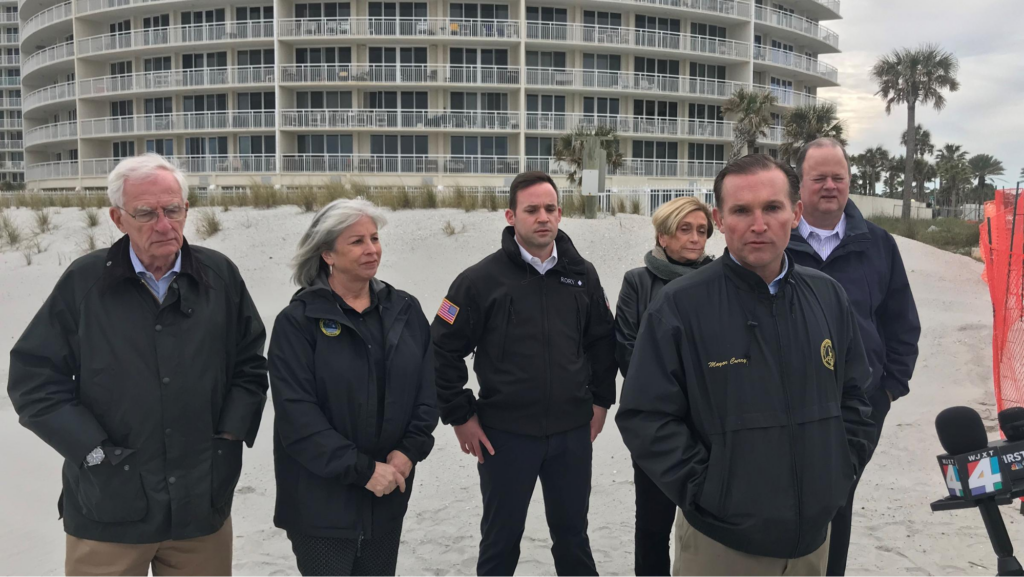
Josh Gellers, associate professor of political science and public administration at the University of North Florida, said, “Any step toward addressing resiliency in the wake of environmental changes and now the kind of new normal that we find ourselves in, I think is a positive move.”
But critics were quick to point out that early in his first term, Curry withdrew Jacksonville from the now defunct Rockefeller Foundation 100 Resilient Cities initiative, which at the time was awarding cities $1 million to address issues including sea level rise, and that Curry had praised President Donald Trump’s commitment to withdraw from the Paris Climate Accord.
Some wondered: Why the change of heart during campaign season?
In the months since then, Jacksonville formed not one but two committees to look at sea level rise (One of them, the Adaptation Action Area Working Group, was mandated by the state).
Curry’s “ad hoc” group is the Storm Resiliency & Infrastructure Development Review Committee. Under the leadership of the city’s outgoing Chief Administrative Officer Sam Mousa, the Storm Resiliency Committee is pushing to regulate development near floodplains, improve drainage and protect wetlands, among other changes.
Catch up on everything that committee has done here.
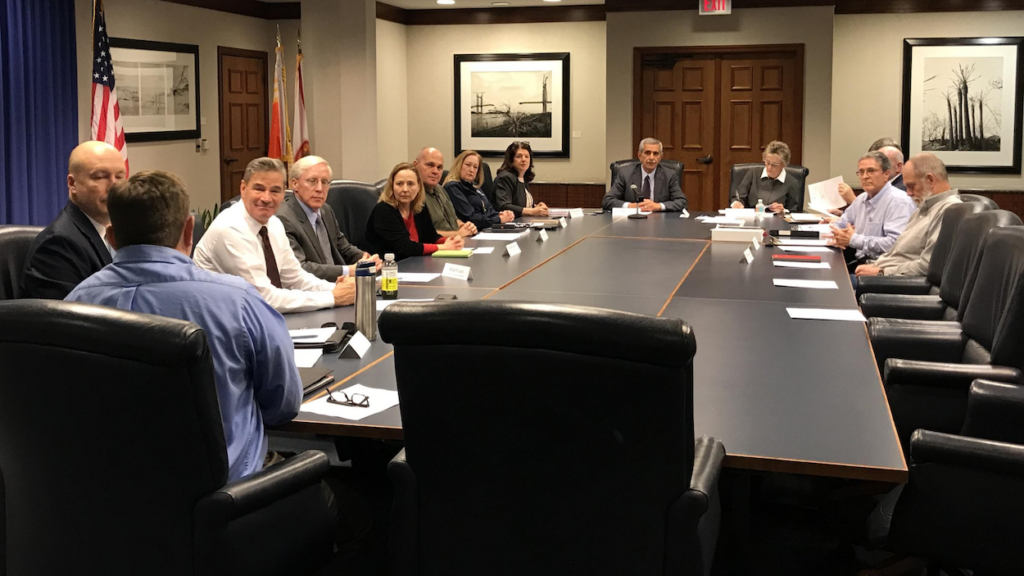
The AAA Working Group, on the other hand, spent its first couple of months in “fact finding” mode and last month took its first action when members voted to expand the committee’s geographic focus. They also want the city to conduct assessments every five years and make adjustments to the “adaptation action area,” the most vulnerable part of town that’s prioritized for infrastructure funding and planning.
Still, some are worried the nascent efforts are coming woefully late in the game.
“When you look at cities we’re competing with, they are light years ahead of us,” Rinaman said in February.
Dr. Todd Sack, a Jacksonville gastroenterologist who sits on the board of Physicians for Social Responsibility and who has attended most of the working group’s meetings, describes climate change as a disease and said the city needs to do more than just treat the symptoms, sea level rise being just one of many.
“We know that carbon dioxide levels have not been at this level for millions of years, and we know that they’re man-made,” he said. “We can, as a city, benefit economically by rolling up our sleeves and creating the jobs to invest in renewable energy and energy efficiency.”
On June 25, Mousa presented the committee’s work before the Jacksonville City Council, emphasizing the need to address sea level rise on a community-wide scale.
“Raising sea walls or bulkheads is going to be a challenge. You need to raise them all along the river, otherwise you’re not keeping the river out,” he said. “I can raise mine at my property line, but if my neighbors don’t, the neighbors next to them don’t…. Then it doesn’t do any good.”
A recent report from the Center for Climate Integrity said Jacksonville is the nation’s most expensive city to protect with sea walls.
In the final minutes of his Council presidency, Aaron Bowman said, “Sounds like… you opened up a lot more work for us.” He’ll be returning to council for another term after running unopposed.
Councilwoman Joyce Morgan, who represents Arlington, said, “This is so important, especially because we live all around water.”
Other than a few tweaks to the city’s rules about development adopted in June, the committees’ recommendations will need City Council action to take effect.
Copyright 2019 ADAPT




